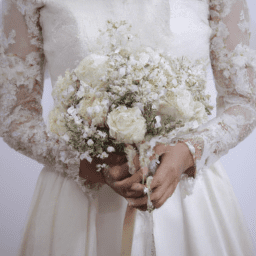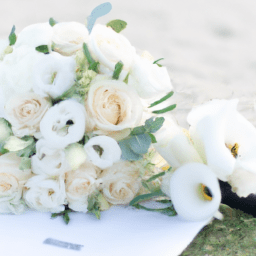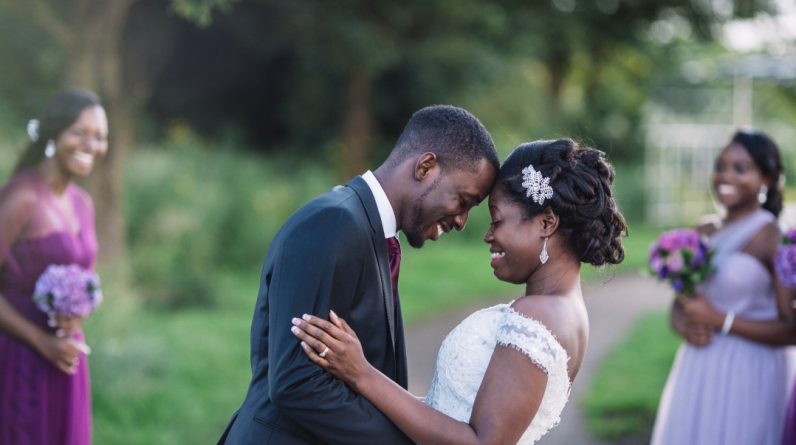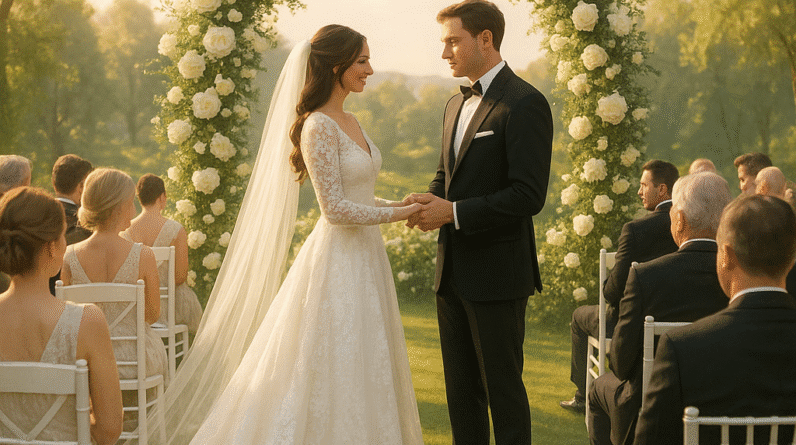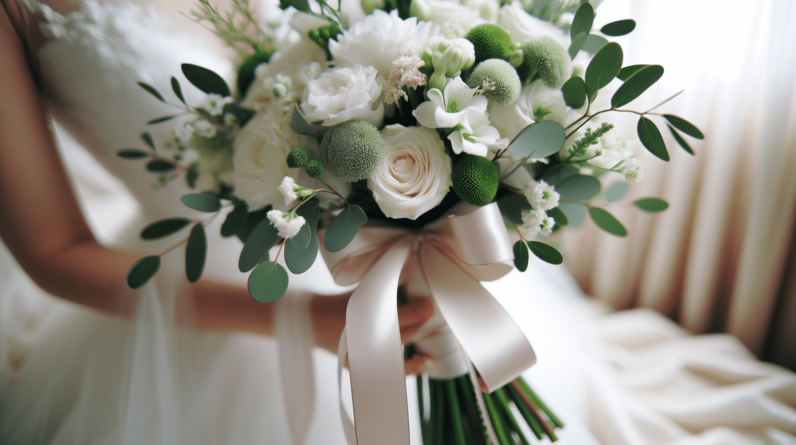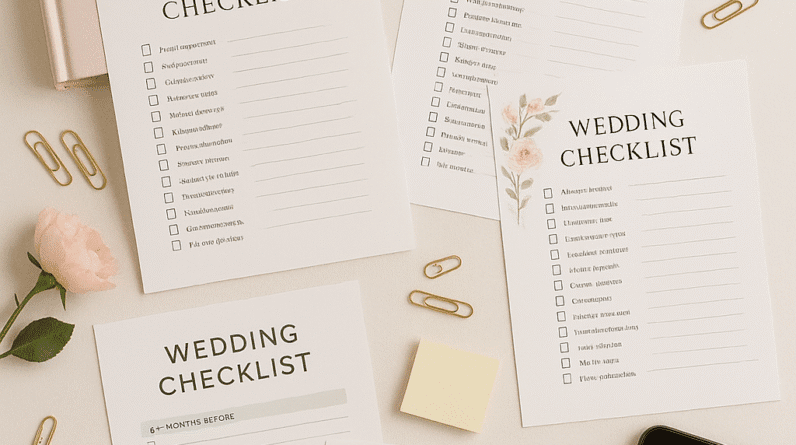
Can We Plan A Successful Wedding Without A Wedding Planner?
Can We Plan A Successful Wedding Without A Wedding Planner? Absolutely—and it’s more achievable than you might think. If you’re overwhelmed by the costs or want more control over your big day, planning your own wedding can be an empowering and deeply personal experience. But the question remains: how do you navigate the maze of decisions, vendors, and logistics without a professional by your side?
Let’s break down the challenges, common pitfalls, and proven strategies for pulling off a flawless DIY wedding, even without a planner.
Why Couples Choose to Plan Their Own Wedding
The idea of planning your own wedding often starts with two motivators: budget constraints and personal customization.
Professional wedding planners can cost anywhere from $1,500 to over $10,000, depending on the scope of their services. By going DIY, couples can redirect that budget toward the venue, catering, entertainment, or even the honeymoon.
Full Creative Control
Many couples crave a wedding that feels uniquely theirs—something a planner may not fully capture. Planning everything yourself allows you to infuse your personality into every detail.
The Key Components of a Wedding—And How to Handle Them Solo
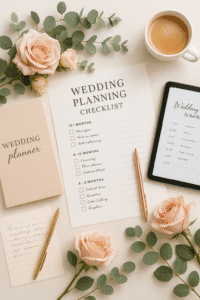
Successfully organizing a wedding requires meticulous attention to several moving parts. Here’s how to manage each major element without professional help:
1. Create a Detailed Timeline
Your wedding planning timeline is your roadmap. Ideally, start at least 12–18 months in advance. Break it into monthly, weekly, and daily to-dos using digital tools like Google Sheets, Trello, or wedding planning apps.
2. Establish a Realistic Budget
List out every potential expense: venue, attire, catering, entertainment, transportation, décor, favors, photography, etc. Always include a buffer of at least 10–15% for unexpected costs.
3. Build Your Dream Vendor Team
From caterers to florists, vet each vendor through reviews, referrals, and sample work. Schedule interviews and site visits. Don’t be afraid to negotiate or ask questions a planner would typically cover.
4. Design and Décor Planning
Start by selecting a theme or color palette. Use Pinterest boards or mood boards to guide your aesthetic. Many décor elements can be DIY or rented affordably.
5. Guest Experience and Communication
Craft a wedding website, send digital RSVPs, and maintain clear communication. Apps like Zola or Joy can help streamline guest lists and updates.
How to Stay Organized Without Losing Your Mind
Without a planner, organization becomes your best friend. Here are tools and tricks to stay on top of every detail:
- Use project management tools: Trello, Asana, or Notion can act as your digital planner.
- Create shared calendars: Sync with your partner, family, or bridal party to track appointments and deadlines.
- Use checklists: Printable or app-based checklists help break down overwhelming tasks.
What Are the Most Common DIY Wedding Mistakes?
Even the most prepared couples can fall into these traps:
- Underestimating the time commitment: Planning a wedding is essentially a part-time job.
- Neglecting a Plan B: Weather, vendor cancellations, or tech failures can derail plans—always have backups.
- Trying to do it all alone: Don’t hesitate to delegate tasks to trusted friends or family members.
Can You Still Enjoy Your Day Without a Planner?
Yes—and it comes down to preparation and delegation. Assign a trusted friend, sibling, or hired “day-of coordinator” to manage logistics on the wedding day. This allows you to soak in every moment without handling last-minute issues.
Final Verdict: Is It Worth Planning Your Wedding Without a Planner?
If you’re organized, resourceful, and willing to put in the time, you can absolutely plan a successful wedding without a wedding planner. The key is knowing your limits, leveraging digital tools, and building a reliable support system.
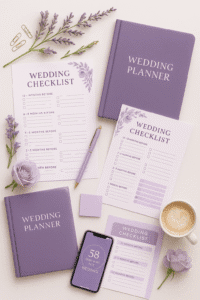
Bonus Tips for a Stress-Free DIY Wedding
- Start early: Procrastination is your biggest enemy.
- Communicate clearly with vendors and guests.
- Test everything beforehand—from sound systems to catering.
- Focus on what matters most: A beautiful day celebrating your love.
Planning your own wedding can be one of the most rewarding projects you’ll ever take on. With the right strategy, tools, and mindset, you’ll create a day that’s not only magical but also entirely your own.
Here’s a list of frequently asked questions (FAQs) related to hiring or working with a wedding planner. These are useful for informational content, service pages, or blog posts:
📝 Wedding Planner FAQs
1. What does a wedding planner do?
A wedding planner helps coordinate and manage all aspects of your wedding, including budget management, vendor selection, scheduling, design, and day-of coordination. Their goal is to make the planning process stress-free and ensure the event runs smoothly.
2. Do I really need a wedding planner?
If you’re short on time, planning a large or complex wedding, or feeling overwhelmed by logistics, hiring a planner can be a smart investment. However, DIY planning is possible with good organization.
3. How much does a wedding planner cost?
Costs vary based on location, experience, and services. Full-service planners can charge $2,000–$10,000+, while day-of coordinators may charge $500–$2,500.
4. What’s the difference between a wedding planner and a day-of coordinator?
A wedding planner is involved from start to finish, while a day-of coordinator steps in during the final weeks to manage event logistics and execution on the wedding day.
5. When should I hire a wedding planner?
Ideally, you should hire a planner 12 to 18 months before your wedding, especially for full-service planning. For day-of coordination, 1–3 months in advance is common.
6. Can a wedding planner help me stay on budget?
Yes! Experienced planners can help prioritize spending, negotiate with vendors, and recommend cost-effective alternatives to stay within budget.
7. Will a wedding planner take over my wedding?
No. A good planner collaborates with you to bring your vision to life. They’ll offer guidance and expertise but always respect your preferences.
8. Do planners get discounts from vendors?
Often, yes. Many planners have strong vendor relationships and may be able to secure better pricing or perks for their clients.
9. What should I ask before hiring a wedding planner?
Ask about experience, past weddings, services offered, pricing, availability, planning style, and how they handle emergencies.
10. Can I hire a wedding planner just for specific tasks?
Yes. Many planners offer à la carte services like venue scouting, vendor management, or timeline creation tailored to your needs.
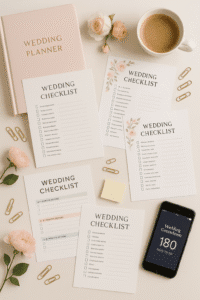
Yes, it is possible to plan a successful wedding without a wedding planner. It will require a lot of time and effort, but it can be done. You will need to research and plan out all the details of the wedding, such as the venue, catering, decorations, music, and more. You will also need to coordinate with vendors and manage the budget. It is important to stay organized and keep track of all the details. With careful planning and attention to detail, you can plan a successful wedding without a wedding planner.
Wedding planners are ideal for creating and executing a couple’s perfect wedding day vision, but if your wedding is small, you can plan without hiring a wedding planner.
For couples on a tight budget who plan a simple ceremony and reception, hiring a wedding planner may not be the best use of your savings.
The wedding planning process is as complicated as you can make and most couples have memorable, beautiful weddings without the help of a wedding planner.
If you do not plan to hire a wedding planner, here are some things to keep in mind to ensure your wedding goes smoothly.
Book wedding vendors as soon as possible
Allocate a few hours each week for planning
Make sure someone is your day of manager
Take advice from experts


